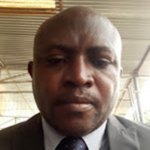Public health and biomedical sciences, Community oral health and dental implantology, African traditional medicine
Cameroon like many francophone African countries has low recruitment of scholars into the doctorate, many spend longer time than expected, the drop-out rate is high and also the students face many obstacles before graduating with their doctorate degrees. The objective of our study was to describe the obstacles encountered by doctorate students during their doctorate training . This was a descriptive cross sectional pilot study carried out in three State Universities in Cameroon between June 2019 and July 2019. The study was carried out on freshly graduated PhD student who were about to submit the final copy of their doctorate theses after defence. Twenty three doctorate graduates made up of 10 males and13 females were evaluated. Range of PhD studies varied between 3 to 15 years depending on the individual,14(60,8%) had problem preparing their research proposal, half 13(56.6%) of the graduates had difficulties with choosing their research topic.The respondents had fears from not meeting deadlines 6(26,09%), when they felt there was inadequate time for data collection 5(21.74%), when the felt preparation for the doctorate was inadequate 5(21.74%), when they were uncertain of research outcome 4(17.39%) and long waiting time of post-doctoral student for the presentation to a defence panel or jury 4(17.39%).A third 15(62.2%) of the students were stuck along their research. Finances 21(91.30%), absent supervisors 4(17.4%), inadequate academic material 4(17.4%), and long waiting for final PhD examinations after completion of research work 3(13.04%) were the major reasons why some students were stuck in the course of their work. To overcome some hindrances during the doctoral theses, 8(34.78%) of the graduates had an honest discussion with their supervisors on their problems, 4(17.49) enrolled in discussion groups, 3(13.04%) strengthen their literature search in English, 3(13.04%) were able to improve on the presentation skills, 3(13.04%) work closely with their supervisors and 2(8.7%) looked for a part-time job to meet up with their financial needs.Almost all 22(95.65%) the student were satisfied with their supervisors, two thirds 15(65.22%) knew the roles of each supervisor at the beginning of their study and 13 (56.52%) solicited the services of additional supervisory support apart from their supervisors in order to improve their work. No memorandum of understanding was signed between student and supervisor before the start of the doctorate research.Doctoral supervision in Cameroon faces a lot of obstacles that need administrative, cultural and collaborative approaches in breaking down some barriers. It is recommended that an in-depth study be carried out to harmonise doctoral education in Anglophone and francophone countries in Africa. Both systems have strengths and weaknesses that can help develop doctoral education in Africa.




